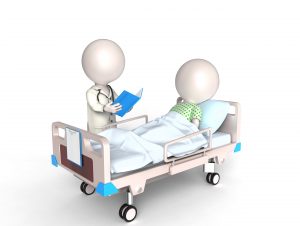 The acute (catabolic) phase refers to the period when the patient is receiving treatment in an Intensive Care Unit following a significant brain injury. During the acute phase there is a brief period of depressed metabolism and reduced energy expenditure lasting a few hours.
The acute (catabolic) phase refers to the period when the patient is receiving treatment in an Intensive Care Unit following a significant brain injury. During the acute phase there is a brief period of depressed metabolism and reduced energy expenditure lasting a few hours.
Following this period nutritional requirements are then considerably increased, resulting from the body’s metabolic response to a significant injury. This metabolic response is referred to as the catabolic phase and results in:
- An increase in metabolic rate.
- Mobilisation of energy reserves from fat.
- Breaking down of body protein reserves (mainly muscle) to provide energy by gluconeogenesis (i.e. conversion of fats and proteins into carbohydrates).
- Rapid weight loss.
- Increase in hormone production (e.g. catecholamines, cortisol, Human Growth Hormone).
- Retention of fluid and sodium.
 During the catabolic phase nutritional support (potentially including enteral or parenteral feeding) will be required to meet the patient’s nutrition and hydration needs. Resting metabolic rate rises significantly but there is much variability in the extent and/or duration of this. This can make it difficult to calculate individual energy requirements. Energy expenditure reduces following the catabolic phase but still remains above normal resting metabolic rate.
During the catabolic phase nutritional support (potentially including enteral or parenteral feeding) will be required to meet the patient’s nutrition and hydration needs. Resting metabolic rate rises significantly but there is much variability in the extent and/or duration of this. This can make it difficult to calculate individual energy requirements. Energy expenditure reduces following the catabolic phase but still remains above normal resting metabolic rate.
Definitions
- Enteral nutrition refers to the method of feeding using a tube to deliver part or all of the person’s nutritional requirements via the gastrointestinal tract. Enteral feeding may be used to deliver all of the person’s nutritional requirements or may be used to supplement oral feeding.
Parenteral nutrition refers to a method of providing nutrition through a vein (i.e. intravenous nutrition). Parenteral nutrition is usually used if the gastrointestinal tract is not functioning (i.e. unable to absorb nutrition/fluids), and as such it is most likely to be sole source of nutrition.
Assessment for Feeding Regimens